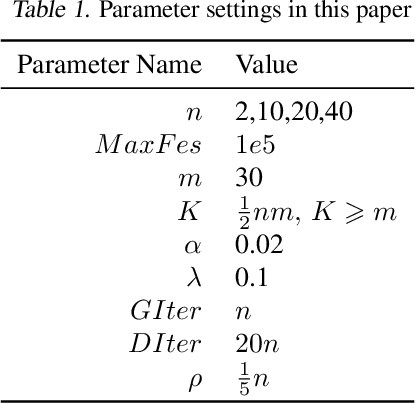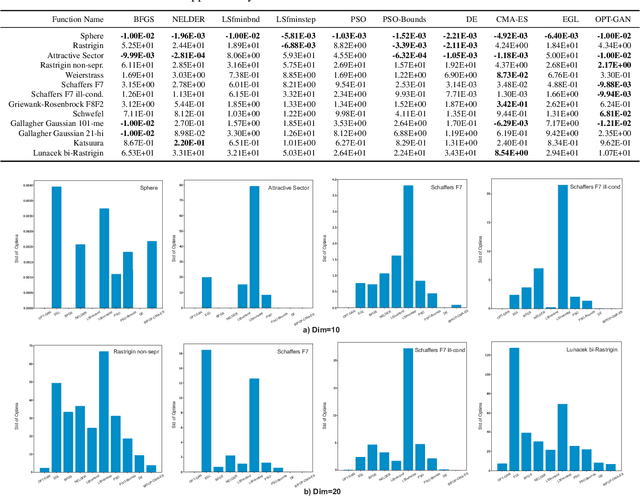Minfang Lu
Robust Representation Learning for Unified Online Top-K Recommendation
Oct 24, 2023



Abstract:In large-scale industrial e-commerce, the efficiency of an online recommendation system is crucial in delivering highly relevant item/content advertising that caters to diverse business scenarios. However, most existing studies focus solely on item advertising, neglecting the significance of content advertising. This oversight results in inconsistencies within the multi-entity structure and unfair retrieval. Furthermore, the challenge of retrieving top-k advertisements from multi-entity advertisements across different domains adds to the complexity. Recent research proves that user-entity behaviors within different domains exhibit characteristics of differentiation and homogeneity. Therefore, the multi-domain matching models typically rely on the hybrid-experts framework with domain-invariant and domain-specific representations. Unfortunately, most approaches primarily focus on optimizing the combination mode of different experts, failing to address the inherent difficulty in optimizing the expert modules themselves. The existence of redundant information across different domains introduces interference and competition among experts, while the distinct learning objectives of each domain lead to varying optimization challenges among experts. To tackle these issues, we propose robust representation learning for the unified online top-k recommendation. Our approach constructs unified modeling in entity space to ensure data fairness. The robust representation learning employs domain adversarial learning and multi-view wasserstein distribution learning to learn robust representations. Moreover, the proposed method balances conflicting objectives through the homoscedastic uncertainty weights and orthogonality constraints. Various experiments validate the effectiveness and rationality of our proposed method, which has been successfully deployed online to serve real business scenarios.
AdaptDHM: Adaptive Distribution Hierarchical Model for Multi-Domain CTR Prediction
Nov 22, 2022



Abstract:Large-scale commercial platforms usually involve numerous business domains for diverse business strategies and expect their recommendation systems to provide click-through rate (CTR) predictions for multiple domains simultaneously. Existing promising and widely-used multi-domain models discover domain relationships by explicitly constructing domain-specific networks, but the computation and memory boost significantly with the increase of domains. To reduce computational complexity, manually grouping domains with particular business strategies is common in industrial applications. However, this pre-defined data partitioning way heavily relies on prior knowledge, and it may neglect the underlying data distribution of each domain, hence limiting the model's representation capability. Regarding the above issues, we propose an elegant and flexible multi-distribution modeling paradigm, named Adaptive Distribution Hierarchical Model (AdaptDHM), which is an end-to-end optimization hierarchical structure consisting of a clustering process and classification process. Specifically, we design a distribution adaptation module with a customized dynamic routing mechanism. Instead of introducing prior knowledge for pre-defined data allocation, this routing algorithm adaptively provides a distribution coefficient for each sample to determine which cluster it belongs to. Each cluster corresponds to a particular distribution so that the model can sufficiently capture the commonalities and distinctions between these distinct clusters. Extensive experiments on both public and large-scale Alibaba industrial datasets verify the effectiveness and efficiency of AdaptDHM: Our model achieves impressive prediction accuracy and its time cost during the training stage is more than 50% less than that of other models.
Black-Box Optimization via Generative Adversarial Nets
Feb 07, 2021



Abstract:Black-box optimization (BBO) algorithms are concerned with finding the best solutions for the problems with missing analytical details. Most classical methods for such problems are based on strong and fixed \emph{a priori} assumptions such as Gaussian distribution. However, lots of complex real-world problems are far from the \emph{a priori} distribution, bringing some unexpected obstacles to these methods. In this paper, we present an optimizer using generative adversarial nets (OPT-GAN) to guide search on black-box problems via estimating the distribution of optima. The method learns the extensive distribution of the optimal region dominated by selective candidates. Experiments demonstrate that OPT-GAN outperforms other classical BBO algorithms, in particular the ones with Gaussian assumptions.
 Add to Chrome
Add to Chrome Add to Firefox
Add to Firefox Add to Edge
Add to Edge